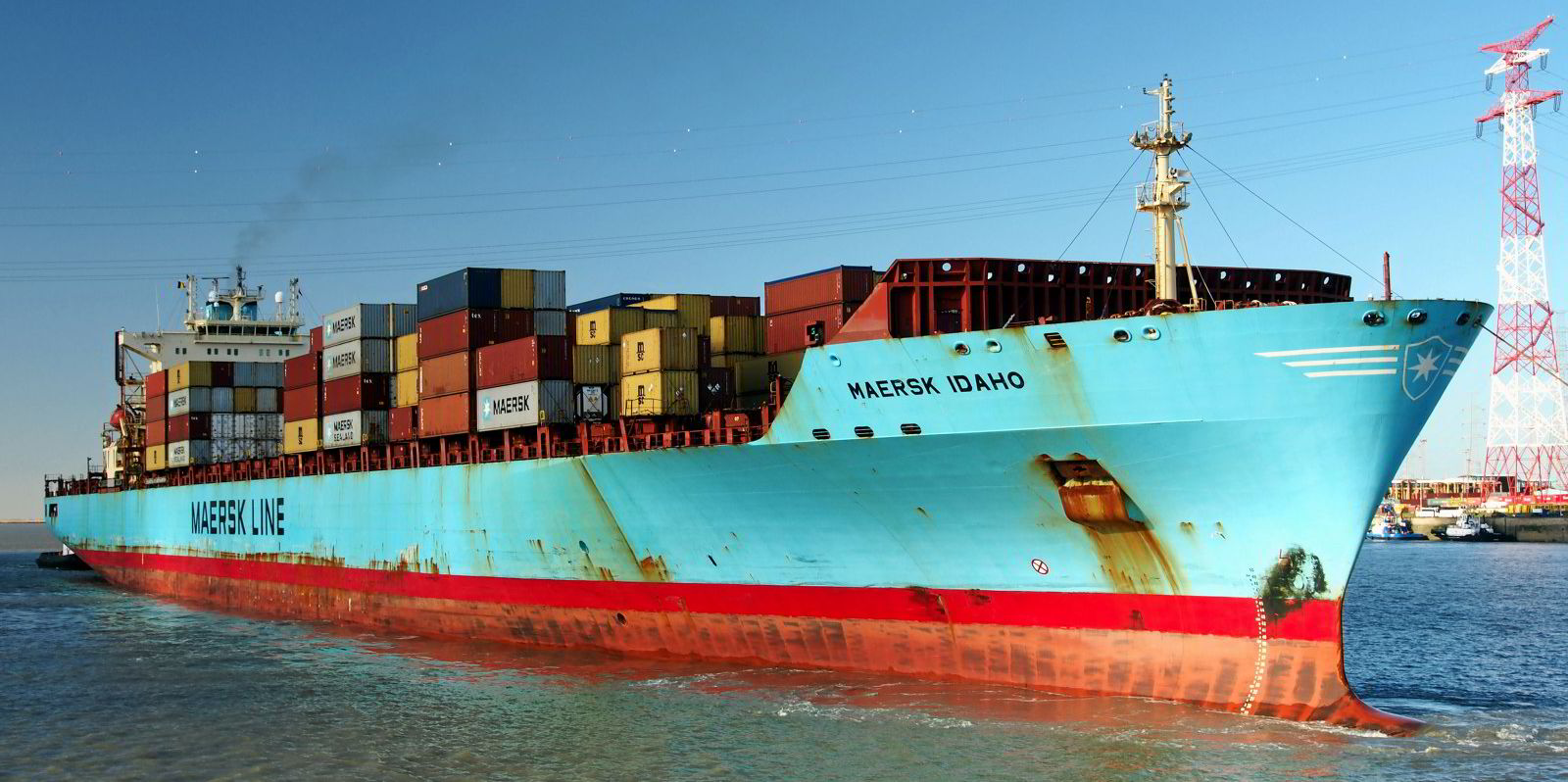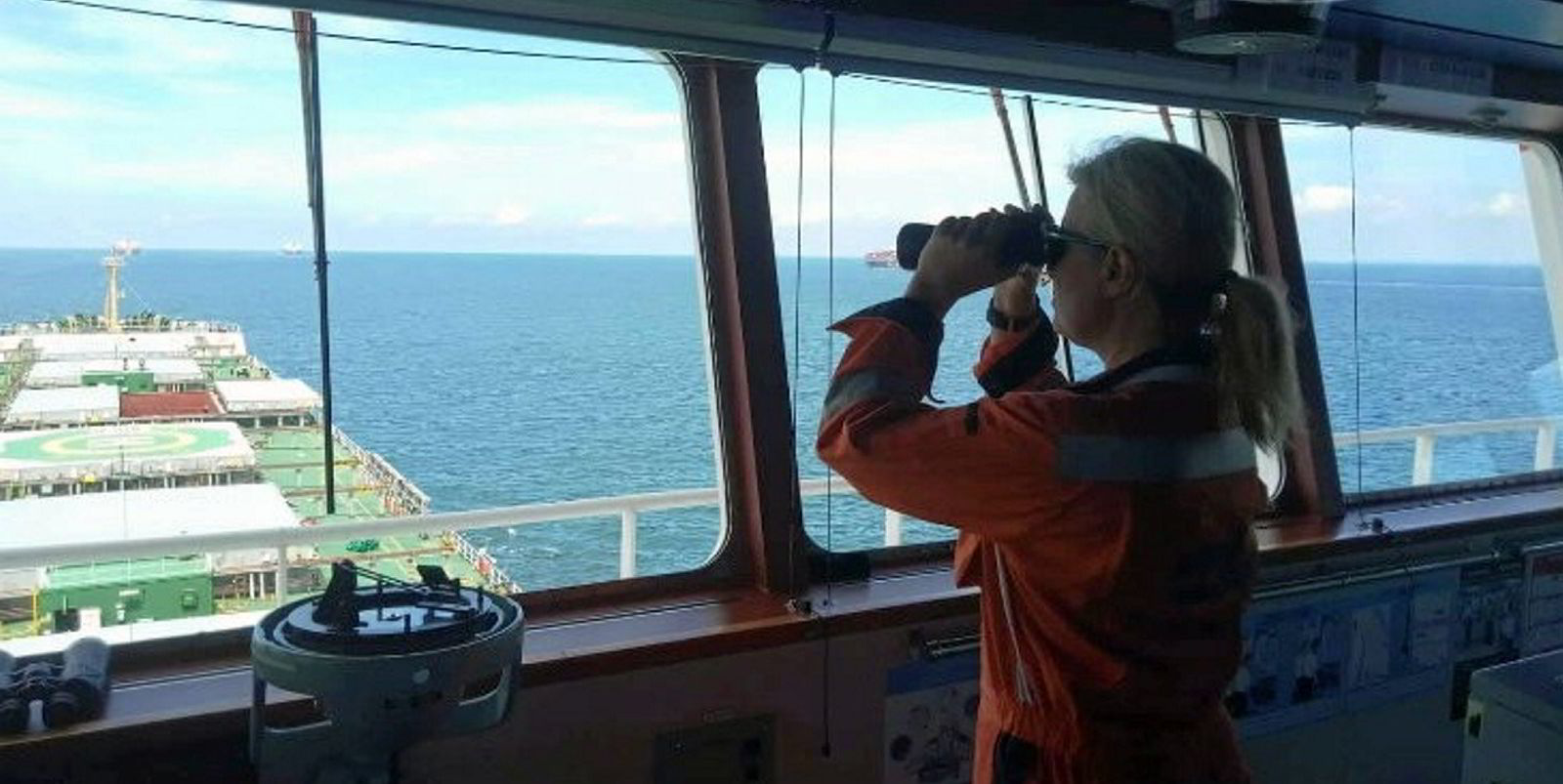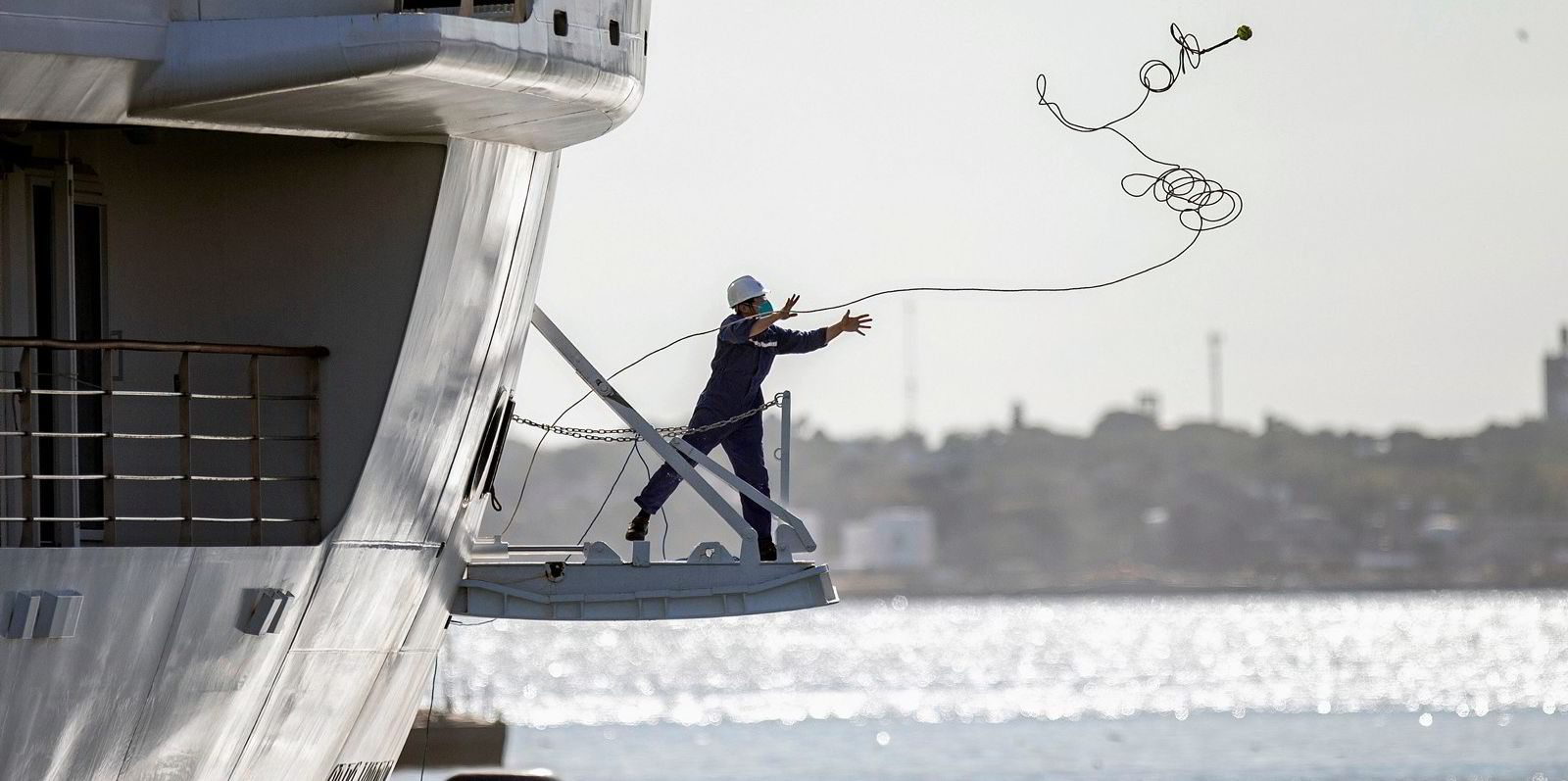A Maersk Line Ltd (MLL) captain is in danger of losing his licence over sexual misconduct, while the AP Moller-Maersk subsidiary appeared to rush to his defence against one of his accusers and the US Coast Guard.
Master Mark Stinziano is awaiting a decision of a USCG administrative law judge on whether or not his actions on the 4,658-teu Maersk Idaho (built 2000) are enough to revoke his merchant mariner credential.
The allegations of abusive sexual contact, sexual molestation and misconduct focus on his treatment of a second mate and two US Merchant Marine Academy cadets between 2014 and 2016, when Stinziano was a chief mate.
The impending decision comes amid a wider furore over sexual assault at sea — including against cadets on board to gain valuable work experience.
Stinziano’s attorney, William Hewig of KP Law in Massachusetts, declined to comment for this story, although the MLL officer has denied allegations against him.
Meanwhile, MLL, Maersk's US-flag subsidiary, is fighting a $10,000 fine for failing to report the allegations to the USCG and accused the agency of harassment when it attempted to obtain documents related to the case.
But worse for second mate Ryan Melogy is that Stinziano is still working at sea for the containership operator when he believes the master could have been charged criminally.
Melogy said Stinziano should "absolutely not" be allowed to keep sailing.
Melogy was second mate on board the Maersk Idaho and has since launched Maritime Legal Aid & Advocacy (MLAA) to campaign for the rights of mariners.
"He is a dangerous person and should be banned from the industry for life," he added.
According to documents reviewed and obtained by TradeWinds, Stinziano was accused of a litany of inappropriate acts, primarily targeting a deck cadet while he was chief mate of the US-flagged Maersk Idaho.
The allegations
In an amended complaint filed ahead of his June trial at the US Customs House in Baltimore and in trial transcripts, Stinziano was accused of groping the cadet multiple times over the course of the voyage.
He also allegedly grabbed the cadet from behind and pressed his groin against him and simulated sex during a lifeboat drill. During the trial, the cadet said Stinziano did it a second time while he was at the chart table.
Stinziano is further accused of raising his fist in a threat to punch the cadet in the groin, drawing a penis on his hard hat during work with shipmates and requiring the cadet to refer to the chief mate as "big daddy" and to refer to himself as "buttercup".
The deck cadet also described at trial a situation in which Stinziano inserted a pen into his own rectum in an attempt to keep another crew member from chewing on the pens.
Stinziano is also accused of showing pornography to an engine cadet and drawing a flipbook of a penis becoming erect after offering to diagram a deck procedure, as well as groping Melogy on two occasions.
At trial, both cadets repeatedly described Stinziano’s actions as making them uncomfortable, while the engine cadet said his behaviour was more severe than the crude and off-colour humour common to life on merchant ships.
Reporting the incident

Melogy, according to USCG documents, wrote a report detailing Stinziano’s behaviour and presented it to the Maersk Idaho’s captain on 3 February 2015.
Instead of taking the allegations to the USCG, MLL appears to have launched its own investigation, which the deck cadet said began with an informal discussion during which the chief engineer told him there could be consequences for what he said.
A second discussion, for which an MLL attorney was said to be present, saw the captain go through Melogy’s allegations point by point while the deck cadet downplayed them. The cadet also downplayed the allegations in a written statement.
"I just wanted to keep everything as easy as possible [for] the rest of my time on the vessel," the deck cadet said at trial.
"I figured it’d be easiest to just say nothing happened and make it go away than to make any noise about it."
He said his story changed because "there’s no reason for me not to tell the truth".
"I’m not on the vessel any more … I’m here, so it’s a safe environment," he said.
Both cadets said there was a culture at the US Merchant Marine Academy to keep things quiet as there are a limited number of vessels for students to get the sea time required to obtain officers’ licences. The engine cadet said he also encountered the same culture in the wider industry.
They also said their experience made them reconsider whether or not they wanted careers at sea, though they would both ultimately graduate.
"It made me feel like I wasn’t strong enough, I guess, for the industry," the deck cadet said. "Because I had assumed that was kind of how all vessels operated.
"I was pretty worn out, depressed, so I considered dropping out of school but I didn’t, I don’t know why I didn’t, but I didn’t."
At trial, Stinziano said none of what he was accused of happened, while Hewig suggested there should have been witnesses to the alleged behaviour. The defence painted Melogy as a poor mariner, who made several mistakes on the voyage and held a vendetta against Stinziano for giving him a bad evaluation.
The engine cadet was alleged to have had a bad attitude, left his room a mess, lost his room key and departed the ship without key papers or his pay cheque.
Hewig further described Stinziano as a decorated mariner, who earned high marks on his evaluations, cares deeply about his shipmates and is quick to help out a young mariner, despite his sometimes crude jokes.
Coming to light

Following MLL's investigation, Stinziano was issued a non-disciplinary letter in March 2015, saying the findings were "inconclusive" and recommending a training course.
The USCG would not begin its investigation until Melogy sent an email to their officials in 2019. In August 2020, revocation proceedings again Stinziano would begin.
The $10,000 fine was levied against MLL on 3 November 2020 for not forwarding Melogy’s allegations, made in writing in February 2015, to the USCG in accordance with a federal law mandating it be notified of all sexual assault allegations aboard US ships.
The case is still open and the USCG declined to provide TradeWinds with details, but a letter from MLL from December 2020 had the company requesting documents to determine how to fight the fine.
At Stinziano’s trial, USCG investigator Charles Wolfe said MLL forced the agency to file subpoenas for documents related to the case, telling him they were "proprietary in case of litigation".
In a motion seeking to compel disclosure of the ship’s crew list, MLL argued that subpoena and others were part of a "campaign of harassment and misrepresentation" from the USCG.
The motion was denied.
MLL further filed a federal lawsuit against the USCG in September in the Eastern District of Virginia under the Freedom of Information Act, seeking the release of documents related to Melogy and MLAA, some expressly related to the Stinziano case.
TradeWinds sent a detailed set of questions to MLL, but the containership operator did not answer.
When asked if MLL took his allegations against Stinziano seriously, Melogy said it did — but not in the way he intended.
"[The allegations] are taken seriously in the sense that they are perceived to represent an enormous liability for the companies and other involved parties," Melogy said.
"Great effort was expended by the [Maersk] Idaho’s captain and senior officers and [Maersk Line’s] legal department to shield themselves from liability for Stinziano’s conduct.
"They did not care about protecting crew members from a predator. Taking something seriously and wanting to do what is right are not the same thing."
- US-based subsidiary of AP Moller-Maersk
- Founded in 1983
- Owner of 20 US-flag containerships, 18 of which earn government stipends under the Maritime Security Program
- Earned $242m in US government contracts in fiscal year 2021, down from the $372m earned in fiscal year 2020 and the $311m earned in fiscal year 2019
- More than 90% of those awards come from the Department of Transportation and Department of Defense








